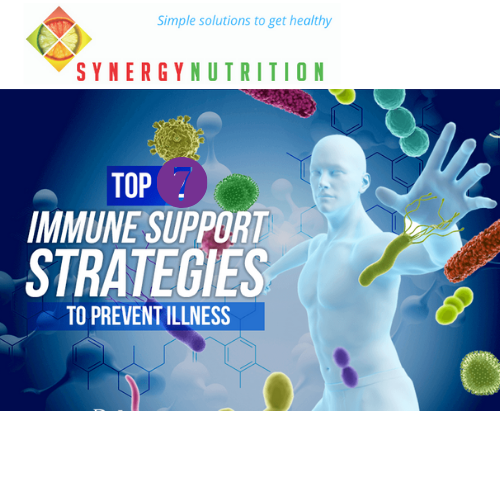In general, most people do  not think about their liver until it malfunctions. The liver’s functioning does not really decrease with age, so in the absence of disease, it should work optimally right into very old age helping to keep all body systems functioning normally. Many ancient cultures, from the most advanced to the most primitive, have believed that the liver was the centre and the source of life. Being a natural multitasker, not only does the liver process and neutralise toxins and poisons; it has hundreds of other roles including manufacturing enzymes, proteins, bile for digestion, storing vitamins and regulating cholesterol and glycogen reserves.
not think about their liver until it malfunctions. The liver’s functioning does not really decrease with age, so in the absence of disease, it should work optimally right into very old age helping to keep all body systems functioning normally. Many ancient cultures, from the most advanced to the most primitive, have believed that the liver was the centre and the source of life. Being a natural multitasker, not only does the liver process and neutralise toxins and poisons; it has hundreds of other roles including manufacturing enzymes, proteins, bile for digestion, storing vitamins and regulating cholesterol and glycogen reserves.
Many organs play a supportive role in the process of detoxification, including the stomach (digestion), the small intestine (assimilation) and the skin (elimination of toxins). If any of these essential organs are not operating at optimal capacity the normal daily detoxification process may be impaired. The health of the bowel or colon is crucial in ensuring liver function is optimum too. Sluggish bowels often lead to the liver function being compromised as toxins are not readily excreted and are instead reabsorbed back into the blood stream consequently leading to feelings of sluggish, brain fog, headaches. Other symptoms of liver dysfunction range from flatulence, distension of the abdomen, fluid retention and constipation-all the way through to jaundice and cirrhosis. The Chinese talk about the liver as housing the emotion of anger and this is also supported by the old saying that somebody is feeling “liverish” today.
Preparing the body for a detox programme
Detoxifying is a unique experience for everyone. It is a positive step to spend a week or two preparing the body before you start a detox programme. You can do this by cutting down on caffeine, cigarettes and alcohol and opening the channels of elimination by taking a gentle fibre supplement, increasing water intake and drinking vegetable juices. Many people may experience a dull headache for a few days when weening off any vices, this is because the body is craving the nicotine or caffeine. Drink plenty of filtered water and herbal teas such as Dandelion, Burdock, Chicory, Red Clover, Chamomile, Ginger and Peppermint as these teas assist digestion and increase liver processes. Green tea has also been shown to contain flavanoids that may protect the liver. One of the easiest ways to support your liver immediately is to start your day with a tall glass of lemon water at room temperature. This stimulates your liver first thing in the morning, helping to cleanse it and promote detoxification. It can also stimulate a bowel movement, which is essential for the body’s aid in detoxification. The vitamin C content helps the liver synthesise toxins into a water-soluble substance for easy removal by the body. Be cautious of detox products and liver cleansers on the market, which claim instant results. The liver is a powerful organ, which detoxifies 24 hours a day so we only want to rebalance its function.
We are bombarded with toxins every day as they are found in the environment, in our food and drink and even in our hair and beauty products. Thoughts can also be toxic. One does not have to undergo extreme detox regimes to cleanse the liver as the liver being a smart robust organ does it all by itself. You can however support your liver function by reducing the amount of toxins you consume and by incorporating foods that support the pathways for liver detoxification such as those listed below:
A diet high in antioxidants protects the liver from the high levels of free radicals that are naturally produced during the process of detoxification. Stock up on seasonal fruits, nuts and seeds which contain vitamins A, C and E. Do you remember which foods contains antioxidants? Blueberries, broccoli and goji berries are a few examples of rich sources.
Greens are super cleansing foods that offer a powerful support to the liver. Leafy greens, including dandelion, chicory, endive, and rocket. The bitterness of some of the greens helps to stimulate bile flow within the liver, which assists in removing waste from the organs and blood.
Artichokes are also known to help the liver regenerate and stimulating bile production. Cruciferous vegetables such as broccoli, cauliflower, cabbage, Brussels sprouts and kale are also good sources of sulfur and help the liver to produce enzymes it needs for its detoxification processes.
Avocadoes contain glutathione-producing compounds that have antioxidant properties for the liver. Turmeric contains a high concentration of curcumin, a potent anti-oxidant that protects the liver from damage.
Supplements for the Liver
In astrology the liver is ruled by the Roman god Jupiter who is associated with good living, male sexuality, worldly success, wisdom, justice, spiritual laws rules the liver herbs Dandelion and Milk thistle. Milk thistle is a very common ingredient in most herbal liver support blends. The active ingredient thought to protect the liver is a flavanoid called Silymarin, a strong anti-oxidant extracted from the seeds of the milk thistle plant.
Alpha lipoic acid- sometimes called lipoic acid is a naturally occurring compound that is produced in small amounts by plants, animals, and humans. It is known as the universal antioxidant” because of its potent ability to neutralize a wide range of free radicals. It has a further unique role as it also recycles or regenerates several other important antioxidants including vitamin C and E.

